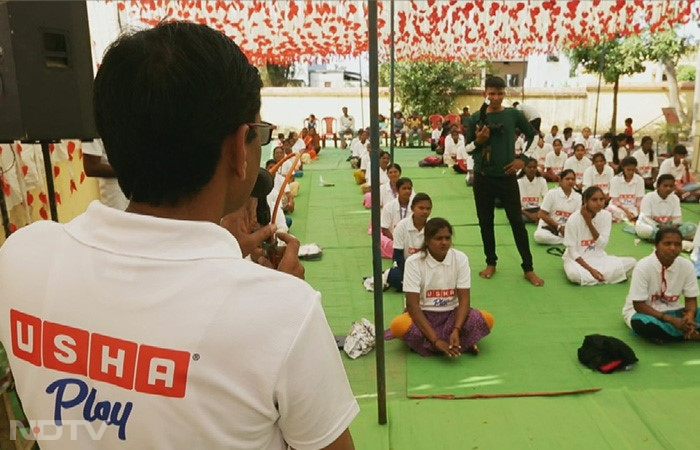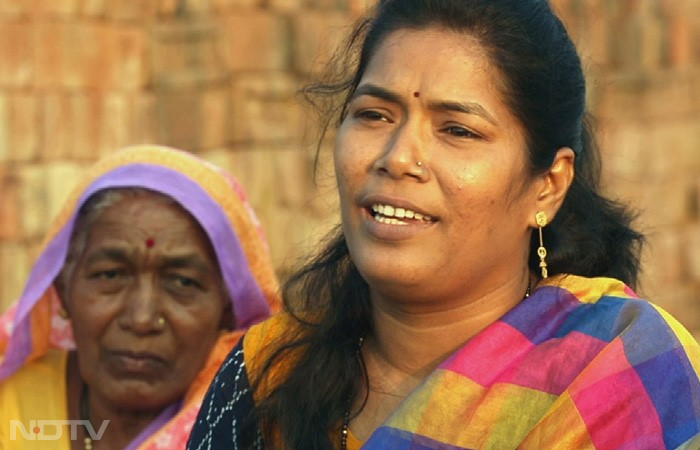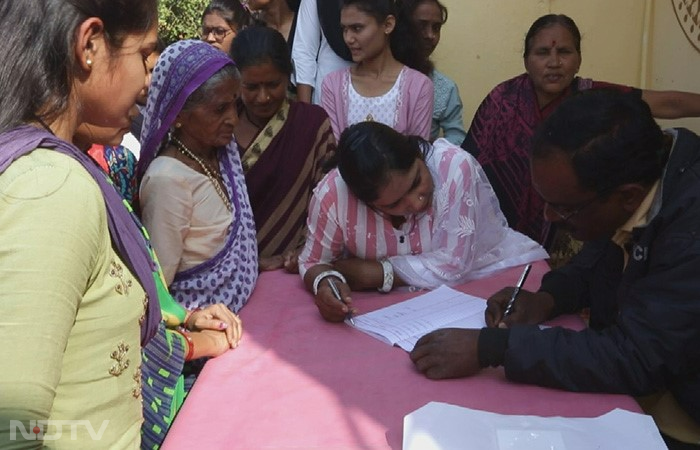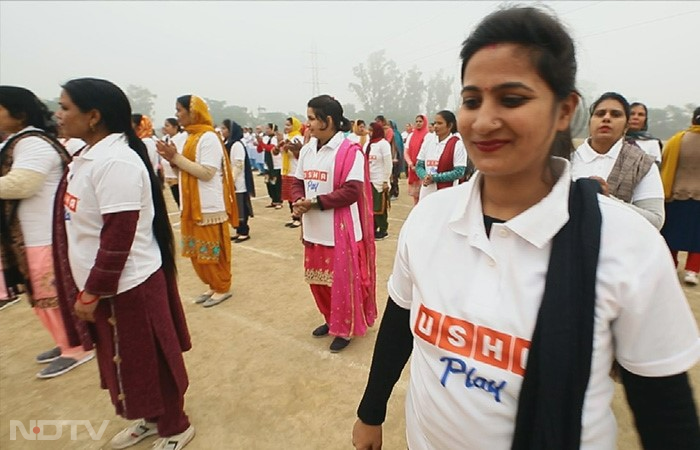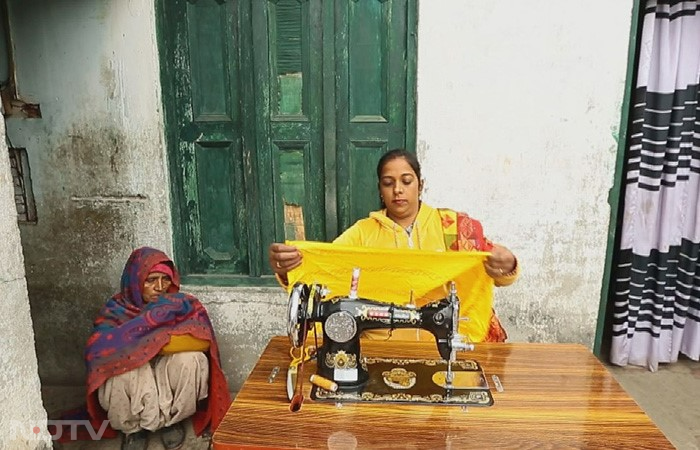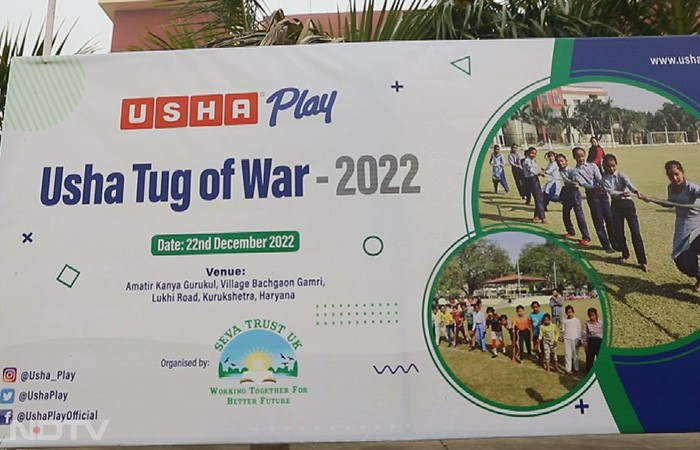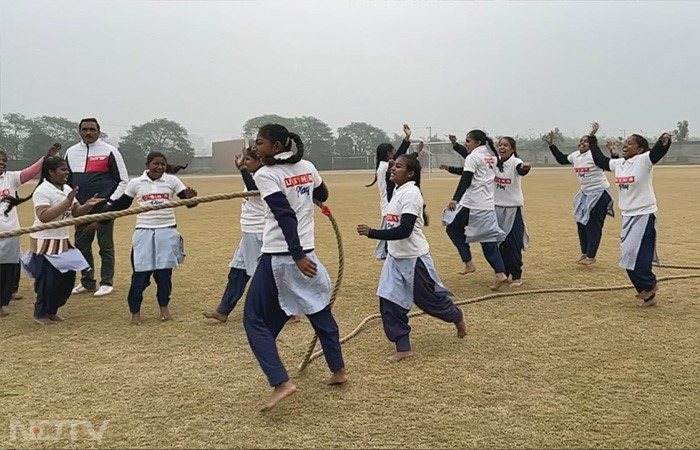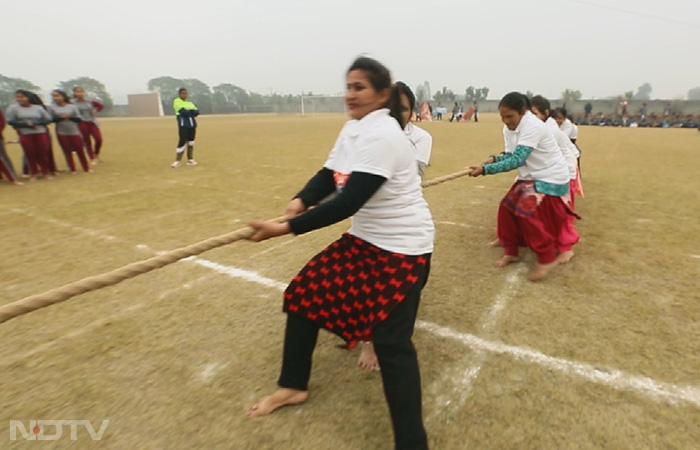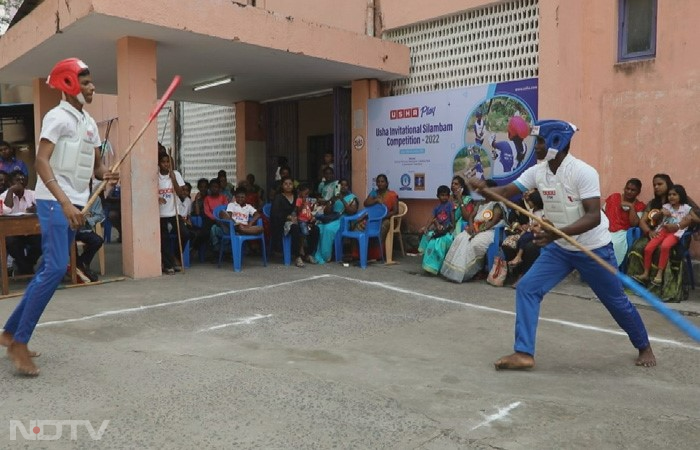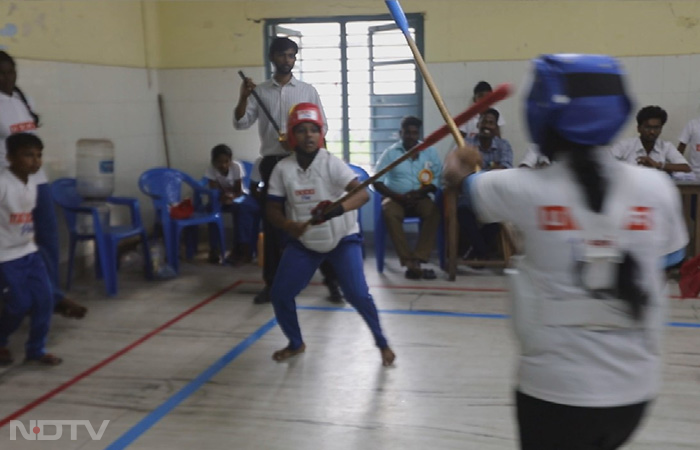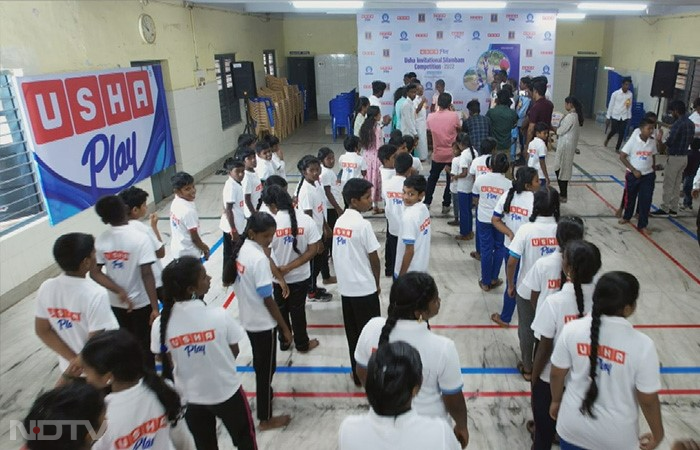USHA Silai School Women Promote And Revive Rural Traditional Sports Across India
India is home to a wide variety of traditional sports. But over the years we have lost touch with our majestic sporting culture and many sports are even on the verge of dying. To re-familiarise the long-lost sports activities, USHA has stepped up to promote various traditional sports across India with the help of women of Silai Schools.
-
It's the morning of the yoga camp, and the women of Lakhori are walking to the local Ayush Kendra for their first ever yoga session. USHA has built a trusting relationship with both young and old people. That's why it has only taken one call by the Usha master trainer for so many women from Lakhori and elsewhere in the tehsil to come for yoga.
-
Varsha has gathered many women from the village and from Lakhani tehsil, to talk about the importance of being ‘skilled'. But it isn't just skills and livelihoods that Varsha teaches. She is also talking about the importance of health for women, especially working women. She's encouraging them to come for the first ever yoga session organised by USHA in their village.
-
From literacy to money matters, nutrition and health to livelihood, empowering a woman means empowering her family, her society, and her community. Their health and well-being depend on her health and well-being. And if the woman of the house inculcates a healthy lifestyle in her children from an early age, leading by example, then an entire generation can be made conscious of good health.
-
Tug of War was part of the Olympics from 1900 to 1920, and the sport is now lobbying to be included once again. Regardless of what happens on the world stage, its popularity needs to grow at the grassroots level. And that is USHA's active focus: bringing these sports back into public consciousness and increasing local interest in them.
-
In bringing these women out of their houses, away from their chores, to experience the simple pleasures of life, Usha is helping break gender biases. As these women's hands firmly grasp the heavy jute fibres of the rope and pull for their lives, but with a smile on their faces, it is clear that given the chance, not only can women do anything, but in strengthening their hands lies the growth of their family, community, and, eventually, the country.
-
Silambam, a self-defense martial art, is played using a cane or a stick and was practised in neighbouring Tamil Nadu as early as the 4th century BC. It had even become part of the ancient military. However, over the years, it lost its charm as modern sports caught the public's fancy, and now the sport is making a comeback.
-
The matches are held in two rounds: the first is a 90-second solo demonstration judged on the basis of style, posture, and speed. The second is a three-minute clash with an opponent with a break in between where the participants are judged on technicalities, including touches.
-
The meet drew many from the outskirts of Puducherry, where children face a dearth of Silambam coaches. Many want the Puducherry government to follow the Tamil Nadu model, where Silambam is a school game with training and practise facilities during school hours, besides incentives for college admissions and job opportunities.

